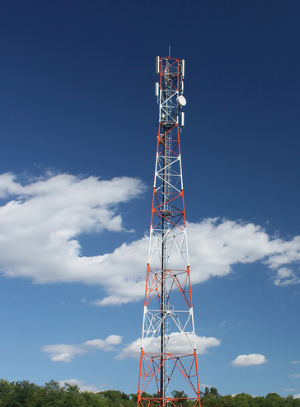Business and Economy
NTC asks Congress to pass measure for expediting installation of additional cell sites in the country

The National Telecommunications Commission (NTC) is urging Congress to enact a law that will allow the installation of cell sites in residential villages and subdivisions to further expand Internet connectivity in the country.(Photo: Emilian Robert Vicol/Flickr)
MANILA—The National Telecommunications Commission (NTC) is urging Congress to enact a law that will allow the installation of cell sites in residential villages and subdivisions to further expand Internet connectivity in the country.
NTC Commissioner Gamaliel Cordoba said that the commission would submit a draft bill that mandates subdivision developers to reserve adequate space for telecommunications infrastructure and facilities.
In addition to cell sites, telco infrastructures shall also include base stations and other communication apparatus needed to improve mobile services.
“The approval of the homeowners association shall no longer be required in the use of utility space for telecommunication infrastructure and other similar features and amenities,” Cordoba said his address during the Philippine Telecommunications Summit Friday at the Philippine International Convention Center in Pasay City.
The bill shall be known as An Act Strengthening the Vital Role of Information and Communications Technology, amending for the purpose pertinent provisions of Presidential Decree 957 also known as the Subdivision and Condominium Buyers’ Protective Decree, as amended by Presidential Decree 1216.
The NTC crafted the measure in coordination with the Department of Information and Communications Technology (DICT) and various stakeholders in the telco industry amid concerns regarding the resistance of various villages and subdivisions for the installation of communication facilities and bureaucratic red tape in acquiring the necessary permits.
According to Cordoba, the bill would be applied prospectively but the NTC would ask Congress for it to have a retroactive effect to penalize uncooperative villages and subdivisions at present.
“We hope that the Congress will be able to address our concerns,” Cordoba stated.
Furthermore, the NTC will also submit a bill that would enable the installation of fiber optic cables to provide high speed Internet in condominiums, commercial establishments, government and private office buildings, public and private hospitals and government and private buildings.
The measure will include the submission of electronic documents to be signed by a registered professional electronics engineer in the application of building permits.
Globe Telecom has disclosed that around 30 villages and subdivisions have rejected their cell site proposals preventing them from proceeding with its network expansion program.
Approval from concerned homeowner associations is one of the permits that telecommunication providers need to secure for the construction of one cell site.
According to Globe Chief Information and Technology Officer Gil Genio, most of the villages rejected their proposals due to alleged health risks associated with cell towers.
Some of these villages include Forbes Park, Magallanes Village, and Belair Village in Makati, Greenmeadows Village, La Vista, and Greenhills North in Quezon City.
Other villages or subdivisions that rejected the company’s cell site proposal include TS Cruz Subdivision, Fruitville, BF Executive Homes Village, JEE Village, all in Las Pinas City; BF Homes, Merville, South Bay Garden Village all in Paranaque City; Vista Verde in Tanay, Rizal; Concepcion Village, Modesta Village, Loyola Grand Villas, Jaybee Village, St. Mary’s Subdivision, Vista Real Classica Subdivision, and Meteor Homes in Marikina City; Vista Verde Subdivision in Cainta, Rizal; Valle Verde 1 in Pasig; Kings Vill Executive Village in Antipolo, Rizal; Smile CitiHomes Condominium in Quezon City; Thomas Home in Valenzuela City; and Vista Rio Village in Cardona, Rizal.
He assured that Globe cell sites were issued radiation safety certificates by the Department of Health as proof that radio frequency signals from their facilities do not pose any danger to health.
“At Globe, we ensure that all our facilities adhere to global health standards. The radiation-safety certificates should allay concerns over alleged health hazard that some HOAs are concerned about, he said.
For his part, DICT Secretary Rodolfo Salalima reiterated the need for the establishment of mobile communication facilities to ensure quality services at an affordable cost.
“The right to telecommunications is a basic human right. The DICT is mandated to improve public access to telecommunication and to build information structures as means to capacity building for industry and countryside developments particularly in areas unreached or underserved by the public telecommunication entities,” Salalima said.
The Philippines has the lowest number of cell sites in Asia with a combined 15,000 cell sites based on a February 16 study of TowerXchange.
China has the highest number with 1.18 million sites followed by India with 450,000, Indonesia with 76,477 and Vietnam with 55,000.
Moreover, construction of a single cell site need 26 permits taking at least 9 months to complete the process.





















